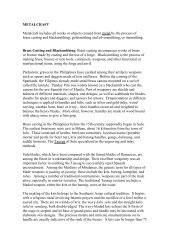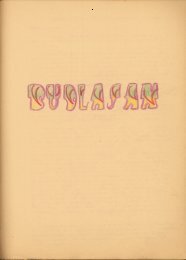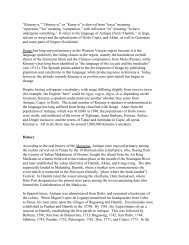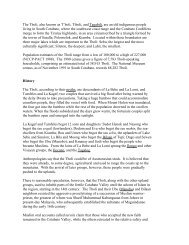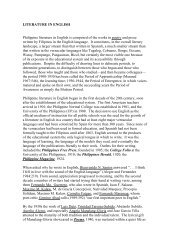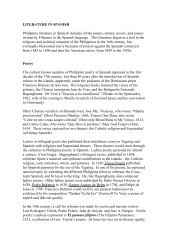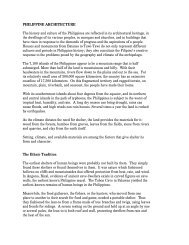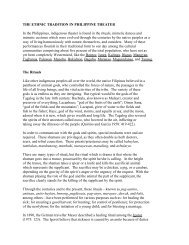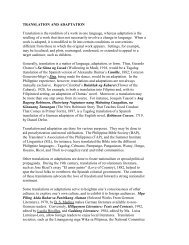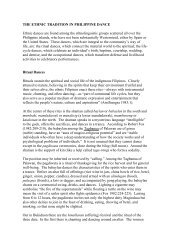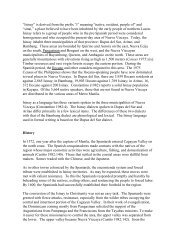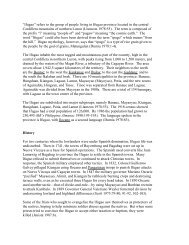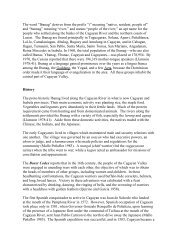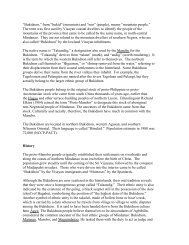THE ETHNIC TRADITION The Filipino's earliest ancestors travelled ...
THE ETHNIC TRADITION The Filipino's earliest ancestors travelled ...
THE ETHNIC TRADITION The Filipino's earliest ancestors travelled ...
You also want an ePaper? Increase the reach of your titles
YUMPU automatically turns print PDFs into web optimized ePapers that Google loves.
This Tagalog awit describes the difficulties of a fisher’s life (Eugenio 1982:453):<br />
Ang mangingisda’t anong hirap<br />
Maghulog bumatak ng lambat<br />
Laging basa ng tubig dagat<br />
Pagal at puyat magdamag.<br />
How hard it is to be a fisher<br />
to cast the net and pull it back,<br />
always wet with sea water,<br />
tired and sleepless the whole night.<br />
Often the folk get together for a few rounds of drinks to relax. <strong>The</strong>se are their occasions<br />
for singing and making merry. An example of a drinking song is this tagay from Cebu<br />
(Eugenio 1982:459):<br />
Ay, Liding, Liding, Liding,<br />
Ay, Liding, Liding, Liding,<br />
Uhaw tagay.<br />
Uhaw tagay.<br />
Kon walay sumsuman,<br />
Ihawan ang hinuktan.<br />
Uhaw tagay<br />
Uhaw tagay.<br />
Ay, Liding, Liding, Liding,<br />
Ay, Liding, Liding, Liding,<br />
I am thirsty; let us drink.<br />
I am thirsty; let us drink.<br />
If there is no sumsuman<br />
Kill the hinuktan<br />
I am thirsty; let us drink.<br />
I am thirsty; let us drink.<br />
Songs had always been part of the tribal rituals for the dead. When a person died,<br />
the community held extended funerals, at which poems of lamentation, such as the<br />
Ilocano dung-aw today, and the narrative of the dead person’s life were chanted for<br />
several nights. This dirge from Sagada is sung during the wake when the body in state<br />
is tied to the sangadil or death chair (Eugenio 1982:165-168):



